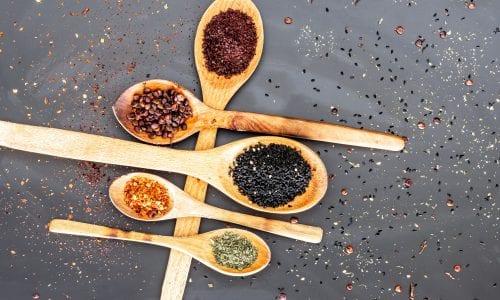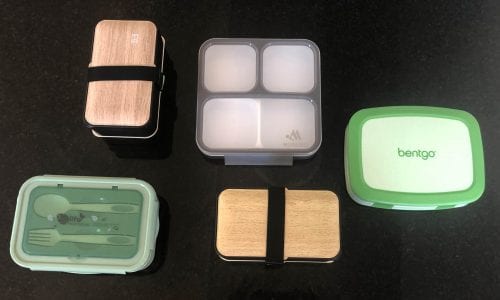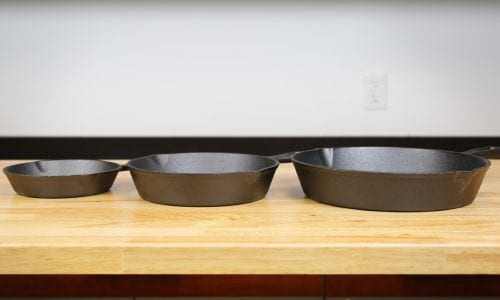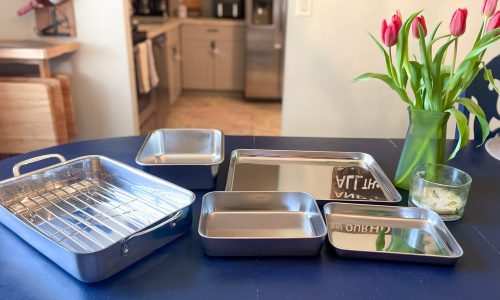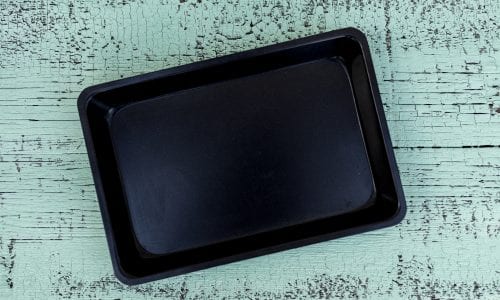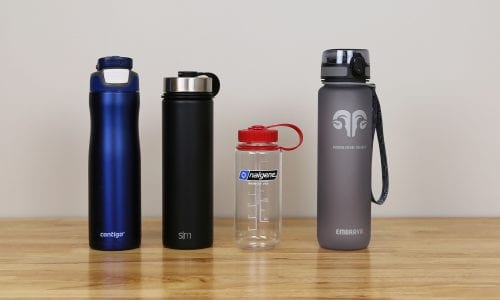The Best Silicone Molds
We looked at the top 10 Silicone Molds and dug through the reviews from 16 of the most popular review sites including and more. The result is a ranking of the best Silicone Molds.
Our Review Process
Don't Waste Your Money is focused on helping you make the best purchasing decision. Our team of experts spends hundreds of hours analyzing, testing, and researching products so you don't have to. Learn more.
Our Picks For The Top Silicone Molds
- 1. Repinsta Silicone Resin 3D Shapes Casting Molds Kit
- 2. DanziX Flower Shape Silicone Candy Molds Set, 4 Pack
- 3. LEDeng Semi Sphere Hot Chocolate Bomb Silicone Mold, 2 Pack
- 4. Wilton Brownie Bites Square Silicone Molds
- 5. Boao Cake Decorating Silicone Dragon Mold, 2 Pack
- 6. Walfos Silicone Rectangle Soap & Baking Molds, 3 Pack
- 7. CAKETIME Silicone Candy Mold & Ice Cube Tray, 5 Pack
- 8. Mighty-X Food Grade Non-Stick Silicone Candy Molds, 6 Pack
- 9. IELEK Silicone Non-Stick Assorted Shapes Cupcake Baking Cups, 36 Pack
- 10. Palksky Rectangle Silicone Baking Mold, 2 Pack
You'll get five molds, a measuring cup and five pipettes to make cool crafts. The shapes include a sphere, cube, pyramid, square and circle, perfect for making epoxy resins, soaps, candles, coasters and more. The material is nonstick and easily cleaned.
Perfect for BeginnersThe flexible material of these molds ensures they’re easy to use and keep clean.
This set includes four molds, each with 15 flower-shaped cavities to help you make soaps, candies or cakes. The temperature tolerance ranges from -40 to 446 degrees F, making it safe for freezing or baking. The silicone is both flexible and durable.
Easy to MaintainSafe for refrigerators as well as ovens, these flower-shaped molds are totally versatile.
You'll get two six-cavity molds in this set, which is nonstick and flexible and made from food-grade silicone. The temperature range is -40 to 446 degrees F, so you can freeze your creations and even pop the mold into the dishwasher between uses.
Versatile OptionMake hot chocolate bombs with this silicone mold, which has an easy-release design.
Although it's designed to make 24 brownie bites, this silicone mold can actually be used to make a wide variety of foods, including frozen treats like ice cream. It can handle up to 500 degrees F, so it's safe for the the oven, but hand-washing is recommended.
Great for Leveling Up Take your baking to the next level with this brownie mold, which makes bite-sized treats.
Buying Guide
Silicone molds can be a great way to up your crafting game. Whether you’re making ornaments, candles, bath soap or candy, a mold lets you create shapes and designs you might not be able to accomplish on your own.
Silicone molds come in many shapes, sizes and designs for all your needs. But there are a few things to look at when you’re shopping for silicone molds.
First, how will you be using them? If your projects involve items you can eat, you’ll need something that’s safe for direct contact with food. Molds that are considered food-grade are typically coated or use materials that won’t leach chemicals when heated.
Consider size. Using small molds may turn out cute and tiny items, but filling many will take time. Larger molds may be offer more versatility overall. However, there’s a reason molds usually come in large trays with multiple small cavities; larger molds aren’t always as flexible, making it tougher to remove your items once they’ve cooled. Whatever size you get, you’ll want to make sure your mold is flexible enough that you can push your creations out from the bottom once they’re ready.
Color doesn’t make that much of a difference, although contrasting hues may help you get organized if you’re making separate batches that are heating and cooling at different times.
Temperature tolerance is also an important factor. You’ll want something that can tolerate cold if you plan to create foods that need to be set in a freezer. On the other hand, you may want it to be able to withstand the heat of a dishwasher or oven. Look for a mold that can handle at least 200 degrees Fahrenheit if you want to clean it in the dishwasher. For oven use, you can find molds that can withstand temperatures of 400 degrees F or more. In general, though, most silicone molds can be used at both very low and very high temperatures — just make sure you check each item before you buy.
Cleanup is another element to look at. Look for molds with nonstick coatings to avoid dealing with sticky residue that makes cleaning tough. You can use warm, soapy water to handwash most molds, but some can be cleaned in the dishwasher.
Check the construction of your silicone mold. It’s best to look for one that’s 100% silicone for the best durability and ease of use. To check for fillers, you can try the pinch test. Simply pinch the silicone between two fingers and make sure it retains its color. If it takes on a whitish shade briefly, chances are, fillers are included.
Why we recommend these silicone molds?
Products Considered
Products Analyzed
Expert Reviews Included
User Opinions Analyzed
Our experts reviewed the top 10 Silicone Molds and also dug through the reviews from 16 of the most popular review sites including and more. The result is a ranking of the best of the best Silicone Molds.
DWYM is your trusted roduct review source. Our team reviews thousands of product reviews from the trusted top experts and combines them into one easy-to-understand score. Learn more.
The Best Bang For Your Buck
LEDeng Semi Sphere Hot Chocolate Bomb Silicone Mold, 2 Pack
Key Takeawy
You'll get two six-cavity molds in this set, which is nonstick and flexible and made from food-grade silicone. The temperature range is -40 to 446 degrees F, so you can freeze your creations and even pop the mold into the dishwasher between uses.
What other experts liked
What other experts didn't like
What to Look For
- Before you use your silicone mold for the first time, take some time to clean it. This will help remove any chemicals and other substances it encountered during manufacturing and shipping.
- Carefully check the uses of each type of mold you’re considering. Not all molds are safe for baking foods, for instance.
- Consider where you’ll work on your projects, assuming you’re not buying your molds for baking. You’ll also need a place to store your molds between uses.
- Keep in mind that as fun as novelty shapes can be, you might not find them as practical as one with a more neutral design. Molds with square or oval cavities, for instance, might be more versatile than those shaped like animals or Christmas trees.
- Molds aren’t the only thing you’ll need for your project. Make sure you’ve invested in other supplies, such as mixing bowls, mixing spoons and baking sheets.
- It can be tempting to store your silicone molds in a stack, but this can warp the surface. If possible, store them in a flat layer. If you’re transporting them, put a layer of cardboard between each mold to preserve its shape.
- You’ll usually want to let your items cool for a while before removing them. The amount of time they’ll need to rest varies from one project to another, but make sure you have a comfortable, cool place for them to stay undisturbed during this cool-off period.
- Silicone is usually safe for putting directly on the oven rack, but you might want to set it on a baking sheet before sliding it in. This can catch any spillover, rather than allowing it to drip to the bottom of your oven, where it will create a mess.
More to Explore
Although the term “silicone” was coined in the early 1900s, it first gained widespread notice through the toy industry. It all started in 1949 when an engineer for General Electric tested mixing silicone oil with boric acid. The result was Silly Putty, which became one of the fastest-selling toys in history.
From that early introduction, silicone has made its way into a wide range of everyday products. The sticky notes that are so popular were discovered in the 1970s and use an adhesive with a silicone base. Silicone rubber was developed during that same decade. Silicone has also been used in the development of contact lenses since the 1970s; in the 1990s, this started taking the form of a hydrogel that made lenses more permeable and comfortable than previous versions.
Today, silicone is found in everything from shampoos and phone screen covers to the microprocessors in the devices used every day.







